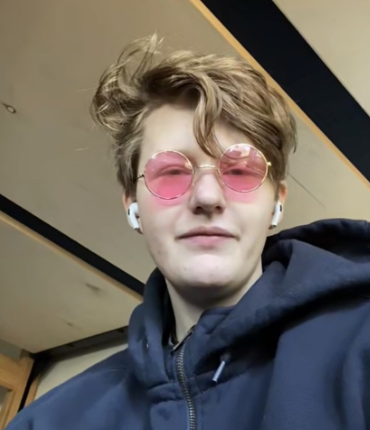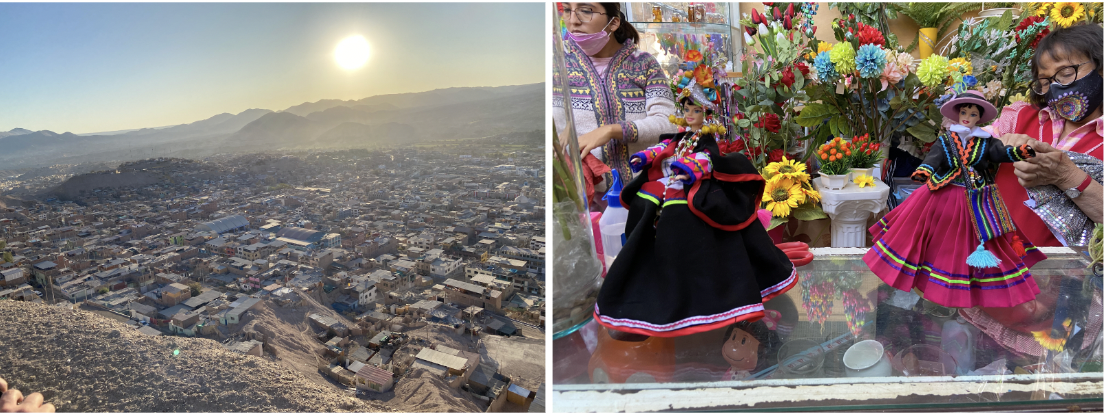Student Stories: Study Abroad
We interviewed two of our anthropology students about their experience studying abroad. Interested in studying abroad? Read these interviews to gain a better understanding of the amazing global opportunities available to you!

Jessie Flynn
Jessie is a 3rd year anthropology student. They study archaeology and specialize in the history of the Americas.
- Where did you study abroad, and how long were you there? What kind of research were you doing while you were abroad?
I studied abroad in Moquegua, Peru. I was there for six weeks and was learning the basics of field lab analysis for archaeological excavations. We were also helping log data for a site that was excavated.
- What motivated you to study abroad, and how did you choose your destination?
Getting field experience was a big motivator to study abroad. I also love archaeology and to have the chance to actually do it out of a classroom was very exciting.
- What was the most challenging aspect of studying abroad, and how did you overcome it?
The most challenging part was living with a bunch of strangers and the anxieties that went with that. I learned how to 1) compromise and communicate about things that needed to change and 2) look deeper at myself to make those compromises and communicate more effectively.
- How did your experience abroad compare to your expectations?
I went in with the expectation that I would be covered in dirt, sweaty, and be the person who loved what I was doing a bit too much. It was actually a lab school which doesn’t do excavation, but I didn’t mind as much as I thought I would. I was still covered in dirt and sweat but everyone around me was just as into it as I was.
- How did your study abroad experience inform your understanding of anthropology as a discipline?
I began to understand how history is defined differently in different places. It is so incredibly important to understand how different people define history because that informs how they interact with history and how they might want you to interact with their history.
- Did you participate in any cultural activities or events while abroad? If so, which ones were the most memorable to you, and why?
We went to markets mostly and were drawn into conversations. I remember listening to people 's stories, trying to piece them together with the little Spanish I knew. We talked about how they snuck onto sacred ground to celebrate a holiday because the government had prohibited people from entering. We talked to another lady about the history of the ceremonial outfits a lady had recreated for Barbie dolls.
- How did you navigate cultural differences and language barriers while abroad?
I navigated these differences by asking questions about things I didn’t understand, while also understanding there is a time and place for questions. For language barriers, I used a lot of hand signals which worked out better than expected.
- How has your study abroad experience impacted your academic or professional goals?
I have realized how much I love this field. It made me fall in love with what I want to do even more and got me excited for my future.
- What advice would you give to other anthropology students who are considering studying abroad?
I would say do it. Definitely find a study abroad that fits your interests otherwise it can feel more like a chore than an experience especially if you have expectations. However, if you don’t know what your interests are, I think studying abroad is a fantastic way to explore. I would also say, bring a pillow you like. It’s always good to have.
- Is there anything else you would like to share about your study abroad experience?
My study abroad experience taught me more about socializing and bonding with people more than anything else. I met some of the most amazing people I know on that trip.

Thank you to Zoe Shmidt, Peer Advisor in the Anthropology Department, for interviewing Jessie about their study abroad experiences. Thank you to Jessie for taking the time to share their global learning story with us!
